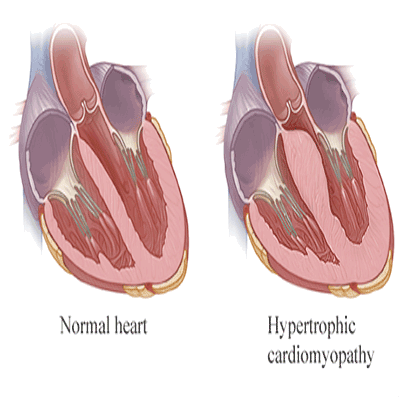Arrhythmias
Heart Arrhythmias – Spaks Homeopathy Overview
Heart arrhythmias occur when the electrical impulses of the heart do not function properly, causing the heart to beat too fast, too slow, or irregularly.
Sometimes it may feel like a fluttering or racing heart and may be harmless. But in certain cases, it can lead to serious complications if left untreated.
At Spaks Homeopathy, we focus on gentle, safe, and natural remedies that work to restore the normal rhythm of the heart while also strengthening the overall circulatory system.
Symptoms of Heart Arrhythmias
-
Fluttering sensation in the chest
-
Rapid heartbeat (Tachycardia)
-
Slow heartbeat (Bradycardia)
-
Chest pain or discomfort
-
Shortness of breath
-
Dizziness or light-headedness
-
Excessive sweating
-
Fainting or near fainting (Syncope)
Spaks Homeopathy Approach
Helps in regulating heart rhythm naturally
Reduces palpitations, chest discomfort, and dizziness
Improves blood circulation and heart function
Addresses the root cause such as stress, hypertension, or weakened heart muscles
Safe, non-addictive, and without side effects
Important Note: Severe or sudden arrhythmias require immediate medical attention. Spaks Homeopathy provides effective supportive treatment and long-term management to improve quality of life.
Spaks Homeopathy – Healing the Heart, the Natural Way. ?
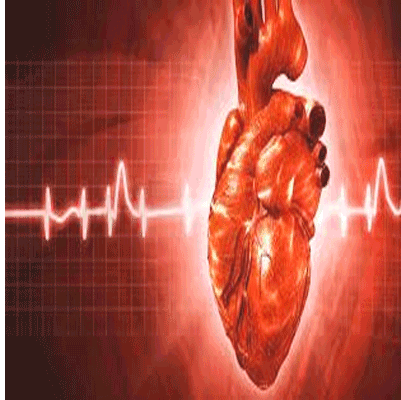
Congenital heart disease-
Overview
Congenital heart condition (congenital heart defect) refers to one or more abnormalities in the structure of the heart that are present at birth.
It is the most common birth defect and can affect how blood flows through the heart. Some defects are simple and cause no noticeable problems, while others are complex and may lead to life-threatening complications.
With modern advances in diagnosis and treatment, most babies who were once at high risk now survive well into adulthood. However, even after surgical or medical correction in childhood, symptoms and complications may appear later in life.
People with congenital heart disease often require lifelong medical supervision to monitor their heart health.
Symptoms
-
Abnormal heart rhythms (arrhythmias)
-
Bluish discoloration of skin, lips, and fingernails (cyanosis)
-
Shortness of breath
-
Rapid tiredness or fatigue on exertion
-
Swelling of body tissues or organs (edema)
-
Feeding difficulties in infants
-
Low birth weight
-
Chest pain or discomfort
Effects
-
Growth and developmental delays in children
-
Reduced stamina and poor exercise tolerance
-
Increased risk of heart infections (endocarditis)
-
Heart failure in severe untreated cases
-
Anxiety, stress, and emotional difficulties in patients and families
-
May lead to stroke or pulmonary hypertension if left unmanaged
-
Impact on overall quality of life and physical activity
Treatment
Conventional Treatment
-
Medications: To help regulate heart function, prevent clots, or control arrhythmias
-
Catheter procedures: Minimally invasive surgeries to repair defects
-
Open-heart surgery: For structural correction of complex defects
-
Heart transplant: In rare, severe cases
-
Lifelong monitoring: Regular checkups, echocardiograms, and lifestyle care
Lifestyle Care
-
Avoid smoking and alcohol
-
Maintain a heart-healthy diet
-
Regular but mild exercise under medical advice
-
Prevent infections with good hygiene
Spaks Homeopathy Treatment
At Spaks Homeopathy, treatment is aimed at improving heart efficiency, reducing symptoms, and enhancing vitality naturally. Remedies are chosen based on individual constitution and symptoms:
-
Digitalis – for irregular heartbeats, palpitations, and weak pulse
-
Cactus grandiflorus – for chest pain, constriction, and breathlessness
-
Crataegus oxyacantha – known as a heart tonic, improves circulation and strengthens the heart muscle
-
Baryta carbonica – for congenital defects in children with slow growth and weak development
-
Laurocerasus – for cyanosis and low oxygen levels in blood
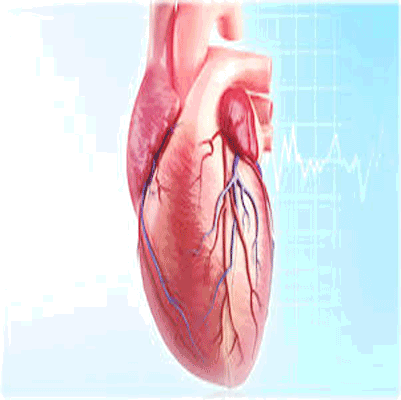
Coronary artery disease
Overview
Coronary artery disease (CAD) is a condition in which the major blood vessels supplying the heart become narrowed or hardened due to the buildup of cholesterol deposits (plaque) and inflammation in the arteries, a process called atherosclerosis.
As plaque builds up, it reduces or blocks the flow of oxygen-rich blood to the heart. Over time, this can weaken the heart muscle and lead to heart failure, arrhythmias, or even a heart attack.
CAD develops gradually and may go unnoticed until significant blockage or heart complications occur.
Symptoms
-
Chest pain (Angina): Tightness, heaviness, burning, or pressure in the chest, usually on the left or middle side.
-
Pain may radiate to the arm, neck, back, or jaw.
-
Angina is usually triggered by physical exertion or emotional stress, and often improves with rest.
-
Shortness of breath during activity, due to poor blood pumping.
-
Fatigue and weakness, especially on exertion.
-
Heart attack: A completely blocked artery can cause intense chest pain, sweating, nausea, and collapse.
Effects
-
Reduced blood and oxygen supply to the heart muscle
-
Weakened heart function leading to heart failure
-
Increased risk of arrhythmias (abnormal heart rhythms)
-
Permanent heart muscle damage if a heart attack occurs
-
Emotional stress, anxiety, and reduced quality of life
-
Life-threatening complications if untreated
Treatment
Conventional Care
-
Lifestyle changes – Healthy diet (low fat, low cholesterol), regular exercise, stress management, quitting smoking, reducing alcohol.
-
Medications – Blood thinners, cholesterol-lowering drugs (statins), beta-blockers, calcium channel blockers, nitrates.
-
Medical procedures – Angioplasty with stent placement, or bypass surgery in severe blockages.
-
Regular monitoring – Blood pressure, cholesterol, blood sugar control.
Spaks Homeopathy Treatment
Homeopathy works by improving overall cardiac health, regulating circulation, and reducing the risk of recurrence naturally. It does not provide emergency relief during a heart attack, but helps in long-term management and prevention.
Common Remedies Used:
-
Crataegus Oxyacantha (Hawthorn): Improves heart muscle strength, relieves chest tightness, helps regulate blood pressure.
-
Cactus Grandiflorus: For constricting chest pain as if the heart is “gripped by an iron band.”
-
Digitalis: Useful when there is irregular, slow pulse with breathlessness.
-
Arsenicum Album: For restlessness, anxiety, and chest pain worse at night.
-
Spigelia: For sharp, stabbing chest pain radiating to the left arm.
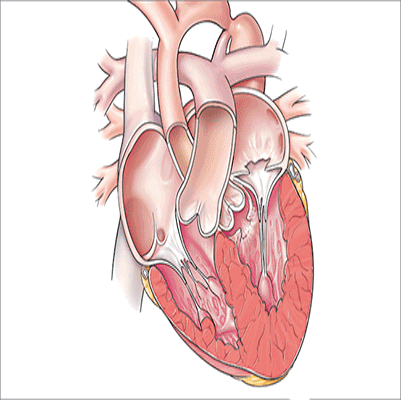
Dilated cardiomyopathy
Overview
Cardiomyopathy is a disease of the heart muscle that makes it harder for the heart to pump blood to the rest of the body.
If left untreated, it can progress to heart failure.
The main types include:
-
Dilated Cardiomyopathy (DCM)
-
Hypertrophic Cardiomyopathy (HCM)
-
Restrictive Cardiomyopathy (RCM)
Treatment depends on the type and severity, and may involve medications, surgically implanted devices, or in severe cases, a heart transplant.
Symptoms
Cardiomyopathy can occur at any age. Common symptoms include:
-
Shortness of breath
-
Swelling of legs and ankles
-
Fatigue and weakness
-
Sudden weight gain (due to fluid retention)
-
Dizziness or fainting
-
Irregular heartbeats (palpitations)
-
Chest pain or pressure
-
Blood clots in the dilated ventricle due to pooling of blood
-
If a clot travels to the brain → Stroke
-
If it blocks vessels in the abdomen or legs → organ damage
-
-
In severe cases, Sudden Cardiac Death
Effects
-
Gradual progression to Heart Failure
-
Fluid retention, swelling, and weight gain
-
Increased risk of Stroke and Paralysis
-
Reduced physical stamina and energy levels
-
Danger of sudden cardiac death
Homeopathic Treatment (By Spaks)
Spaks Homeopathy provides safe and side-effect-free holistic treatment for Cardiomyopathy. It works on the root cause and strengthens heart function.
? Key Homeopathic Medicines (as per symptoms):
-
Digitalis – for irregular heartbeat and palpitations
-
Crataegus Oxyacantha – improves heart muscle strength and circulation
-
Arsenicum Album – relieves breathlessness, fatigue, and restlessness
-
Cactus Grandiflorus – for chest tightness and constriction
-
Laurocerasus – for sudden weakness, fainting, and low vitality
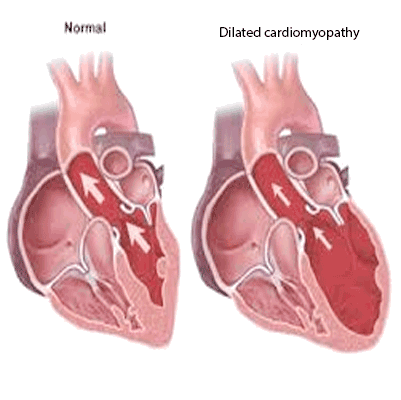
Endocarditis
Endocarditis
Overview
Endocarditis is an infection of the inner lining of the heart chambers and heart valves (endocardium).
It usually occurs when bacteria, fungi, or other germs from another part of the body (such as the mouth) enter the bloodstream and attach to damaged areas of the heart.
If left untreated, endocarditis can damage or destroy heart valves and lead to life-threatening complications. Treatment generally includes antibiotics, and in severe cases, surgery may be required.
People at higher risk include those with damaged heart valves, prosthetic valves, or congenital heart defects.
Symptoms of Endocarditis
-
Flu-like symptoms (fever, chills)
-
A new or changed heart murmur (abnormal heart sounds)
-
Fatigue and weakness
-
Aching joints and muscles
-
Night sweats
-
Shortness of breath
-
Chest pain while breathing
-
Swelling in feet, legs, or abdomen
Effects of Endocarditis
-
Valve damage leading to heart failure
-
Blood clots that can travel to other organs
-
Stroke or organ damage (kidneys, lungs, brain)
-
Persistent infections causing chronic weakness
-
Life-threatening complications if untreated
Homeopathic Treatment (Spaks Homeopathy)
At Spaks Homeopathy, treatment aims to support heart function, control infection naturally, and improve overall immunity. Remedies are chosen based on the individual’s symptoms and health condition.
Arsenicum Album – For weakness, restlessness, and chest discomfort
Digitalis – For irregular heartbeat, palpitations, and weak heart muscles
Cactus Grandiflorus – For chest pain, tightness, and heart congestion
Lachesis – For circulatory issues, swelling, and bluish skin tinge
Spigelia – For sharp chest pains and palpitations
Spaks Homeopathy helps to:
-
Strengthen the heart muscles and valves
-
Reduce fatigue, breathlessness, and chest pain
-
Support natural immunity to fight infection
-
Minimize the risk of complications
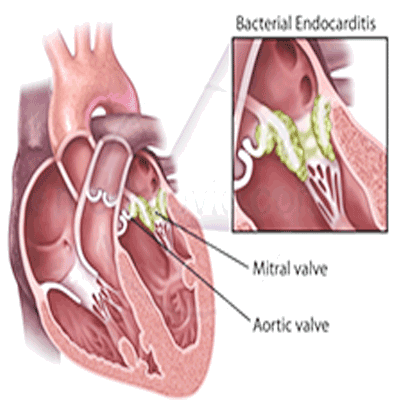
Enlarged heart
Enlarged Heart (Cardiomegaly)
Overview
An enlarged heart (cardiomegaly) is not a disease itself but a sign of another health problem.
It is usually detected in imaging tests like a chest X-ray. Other medical investigations are needed to find the root cause.
It can occur:
-
Temporarily – e.g., during pregnancy or sudden stress.
-
Medically – due to weakened heart muscle, coronary artery disease, valve problems, or irregular heart rhythms.
Symptoms
-
Sometimes, no noticeable symptoms
-
Shortness of breath
-
Abnormal heart rhythm (arrhythmia)
-
Swelling (edema) in feet, legs, or abdomen
Effects (If Untreated)
-
Heart failure (weakened pumping ability)
-
Increased risk of blood clots and stroke
-
Irregular heartbeats → sudden cardiac arrest
-
Fluid buildup in lungs, legs, and abdomen
-
Reduced quality of life due to fatigue and weakness
Treatment
Treatment focuses on the cause of cardiomegaly. Options include:
1. Medications
-
Diuretics → reduce fluid buildup
-
Beta-blockers & ACE inhibitors → improve heart function and lower blood pressure
-
Antiarrhythmic drugs → control abnormal rhythms
-
Anticoagulants → reduce risk of clots and stroke
2. Medical Procedures / Surgery
-
Heart valve repair or replacement
-
Pacemaker or implantable defibrillator (for arrhythmias)
-
Coronary bypass surgery (for blocked arteries)
-
Heart transplant (in severe cases)
3. Lifestyle Management
-
Reduce salt intake to prevent fluid retention
-
Quit smoking and alcohol
-
Maintain a healthy weight
-
Regular exercise (as advised by doctor)
-
Manage blood pressure, cholesterol, and diabetes
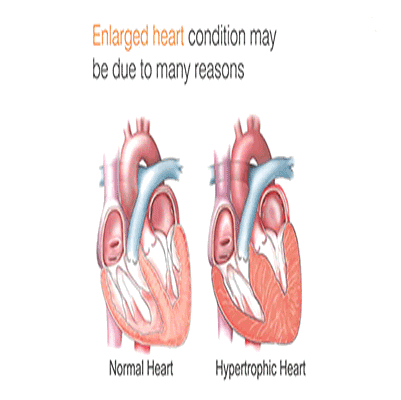
Heart disease
Heart Disease
Overview
Heart disease refers to a group of conditions that affect the heart and blood vessels. These include:
-
Coronary artery disease (narrowed or blocked arteries)
-
Arrhythmias (irregular heart rhythms)
-
Congenital heart defects (present at birth)
-
Heart muscle or valve disorders
The term heart disease is often used interchangeably with cardiovascular disease. Most commonly, it refers to problems involving narrowed or blocked vessels that can lead to chest pain (angina), heart attack, or stroke.
Symptoms
Symptoms may vary between men and women.
-
Men: More likely to experience classic chest pain.
-
Women: More likely to have symptoms like shortness of breath, nausea, or extreme fatigue in addition to chest discomfort.
Common Signs of Heart Disease:
-
Chest pain, tightness, pressure, or discomfort (angina)
-
Shortness of breath
-
Pain, numbness, weakness, or coldness in legs or arms (due to narrowed blood vessels)
-
Pain in the neck, jaw, throat, upper abdomen, or back
Early recognition and treatment of heart disease can save lives and improve quality of life.
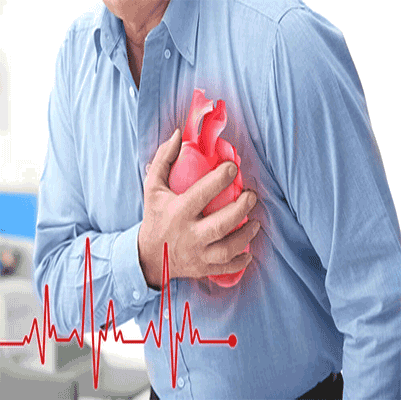
Hypertrophic cardiomyopathy
Hypertrophic Cardiomyopathy (HCM)
Overview
Hypertrophic cardiomyopathy is a condition in which the heart muscle (myocardium) becomes abnormally thick. This thickening makes it harder for the heart to pump blood effectively.
Many people with HCM have no noticeable symptoms and may live normal lives without major problems.
In some cases, however, the thickened muscle can cause shortness of breath, chest pain, fainting, or dangerous heart rhythm problems that can be life-threatening.
Symptoms
Shortness of breath, especially during exertion
Chest pain, particularly with exercise
Fainting during or after physical activity
Rapid, fluttering, or pounding heartbeat (palpitations)
Heart murmur, which may be detected by a doctor
Effects
If untreated, HCM can lead to
Heart failure due to the heart’s reduced ability to pump blood
Severe arrhythmias (irregular heart rhythms)
Sudden cardiac arrest, especially in young athletes
Stroke or other complications caused by poor blood flow
Homeopathic Treatment
Cactus grandiflorus – for palpitations and chest tightness with a feeling of constriction around the heart
Crataegus oxyacantha – strengthens heart muscle and supports circulation
Digitalis purpurea – for irregular, weak, or slow heartbeat with dizziness
Arsenicum album – for breathlessness and anxiety at night
Laurocerasus – for palpitations with weakness and fainting tendencies
Quick Tips
Avoid overexertion and strenuous exercise without medical advice
Manage stress through relaxation techniques
Eat a balanced, heart-healthy diet
Avoid alcohol and smoking
Regularly monitor heart health with a cardiologist
Seek immediate help if chest pain, fainting, or severe palpitations occur
